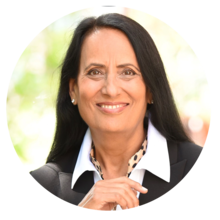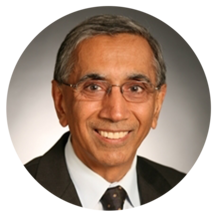About this Presentation
The ultimate constraint in organizations is the limited attention of management. Management wastes their limited attention when they make bad decisions or predictions and then have to deal with the consequences of these bad decisions or predictions. One of the most common types of “bad decisions” involve management making decisions that achieves local/short term optima rather than global/long term optima for the organization as a whole. The cause of this type of mistake is often reported as “local efficiency” or other local or short-term optima metrics. What is often overlooked is the practical difficulty managers face in actually considering and/or predicting the global or long-term impact of their local decisions and/or the difficulty in deciding what local decision rules to use for global rather local optima. Due to the inherent complexity and sensitivity to starting conditions, the system wide or long-term impact is often NOT predictable with simple models developed in spreadsheets or decision support models within ERP systems. Also, the intuition managers need to make challenging and often subjective decisions, are mainly developed considering the short term or local impact of their decisions. The more complex the environment, the longer it will take to develop the intuition needed, because global optima rules are often counter-intuitive from a local perspective and because there is often a long lag in space and/or time between our actions and the consequences of those actions. But is there a practical solution to these two challenges? In this webinar, Dr. Alan Barnard, CEO of Goldratt Research Labs, will share his research and field experience insights with Eli Schragenheim, on how dynamic simulation modeling offers a practical solution to overcome these two challenges. They will discuss why it is so difficult for managers to know what rules to use for global rather than local optima and also why it is so challenging for them to consider or predict the long term/system wide impact of their decisions. He then references a few case studies, shares why dynamic simulation modeling is so critical, not only in helping managers more accurately predict the system wide and long-term impact of their decisions, but also to fast-track the development of the intuition they need to make better faster decisions.
What Will You Learn
To help you get the most value from this session, we’ve highlighted a few key points. These takeaways capture the main ideas and practical insights from the presentation, making it easier for you to review, reflect, and apply what you’ve learned.

Instructor(s)
Alan Barnard
Dr. Alan Barnard is a leading decision scientist and Theory of Constraints (TOC) expert with almost 20 years of experience working directly with Dr. Eli Goldratt, the creator of TOC. As the CEO of Goldratt Research Labs (USA), Alan focuses on using advanced technologies and decision sciences to develop Apps and Decision Support methods, enabling organizations to achieve more with less time. Under his leadership, Goldratt Research Labs has collaborated on innovation and research projects with renowned Fortune 500 companies like Microsoft, Cargill, BHP, Tata Steel, Amazon, and others, along with public sector organizations like Utah Governor's Office and UN WFP. Alan has held prominent roles in various organizations, including past-President of the South African Supply Chain Society SAPICS and past-President of TOCICO. His significant contributions have been recognized through prestigious awards, including inclusion in the 2020 Marquis Who's Who Global Listing, membership in the Forbes Technology Council, and the TOCICO Lifetime Achievement Award. He is an accomplished author and frequent presenter on Decision Making in a Complex World and Theory of Constraints at international conferences. Alan's latest book, "The Bottleneck - How to resolve our attention crisis," is currently in progress. As the chief architect of the award-winning HARMONY Decision Maker, Change Simulator, and Change Maker series of Decision Support Apps, Alan continues to shape the landscape of decision science and TOC. Please let me know if you need any further information or details.

Ms Alka Wadhwa
Alka Wadhwa is an experienced consultant and process improvement expert with over 24 years of expertise in the Theory of Constraints (TOC), Lean Six Sigma, and organizational performance optimization. She has successfully led projects in healthcare, financial services, and manufacturing, driving significant improvements such as a 67% boost in hospital operations and a 140% increase in outpatient visits.
Previously, Alka Wadhwa spent 17+ years at GE Global Research Center, where she led initiatives to enhance various GE businesses through advanced technologies, process redesign, and system optimization. Founder of Better Solutions Consulting, LLC, she specializes in using TOC, Six Sigma, and data analytics to streamline operations and build high-performance teams.
Her work has earned her multiple accolades, including the Empire State Award of Excellence in healthcare.

Dr Gary Wadhwa
Dr. Gary Wadhwa is a Board Certified Oral & Maxillofacial Surgeon with extensive experience in the field. He completed his Oral & Maxillofacial Surgery training at Montefiore Hospital, Albert Einstein College of Medicine in Bronx, NY, and has served as an Attending at prestigious institutions like St. Peters Hospitals, Ellis Hospital, and Beth Israel Hospital in NY. With a career spanning over two decades, he was the former CEO and President of a group specialty practice in NY from 1994 to 2015. Dr. Wadhwa holds an MBA from UT at Knoxville, TN, and has undergone additional training in System Dynamics at MIT, Health System Management at Harvard Business School, and Entrepreneurship and healthcare innovations at Columbia Business School. Committed to expanding access to Oral & Maxillofacial Surgery care, he is currently engaged in a meaningful project to provide healthcare services to underserved populations in inner city and rural areas through non-profit Community Health Centers.
